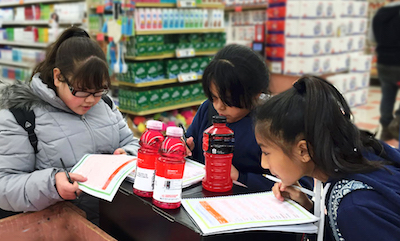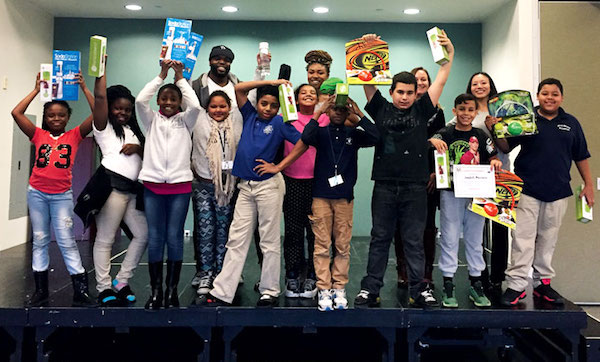“What am I taking and why?” Gilda’s Club, UW-Health to answer your medical questions with new panel
'Ask a Pharmacist' panel set for Jan. 30
January 29, 2020 8:53 AM
Posted: January 29, 2020 8:53 AM
 Bottles of prescription medicine in a pile. This collection of pill bottles is symbolic of the many medications senior adults and chronically ill people take.
Bottles of prescription medicine in a pile. This collection of pill bottles is symbolic of the many medications senior adults and chronically ill people take.
The latest numbers from Georgetown University’s “Health Policy Institute” show more than 131 million Americans, 66% of all adults, use prescription drugs every day.
But how much do you know about what you’re taking and why?
The majority of adults who have one of five common, chronic conditions (diabetes, heart disease, hypertension, arthritis, and cancer) use prescription drugs.
For example, 89% of people with arthritis and 98% of people with diabetes use prescription drugs every day. These high levels of drug use also reflect the fact that many people have multiple, chronic conditions.
The Madison area has a variety of resources to help people better understand what they’re taking. While most of those typically require a one-on-one, scheduled appointment with a doctor, Gilda’s Club is working to change that.
Gilda’s Club is a community resource for anyone fighting cancer. Now, the organization is expanding its reach, bringing together a panel of pharmacists from UW-Health to answer patient questions.
“If there’s something that feels off for you, doesn’t feel right, or you’re concerned, please bring it to our attention,” said Jennifer Piccolo, UW-Health pharmacist and panel participant. “We certainly don’t want to ignore something that could be a side effect for you that might not be for the general public.”
“People will often suffer through side effects without realizing there’s something they can do about them,” Piccolo added.
Those side effects can escalate anxiety for people taking prescriptions. On top of that, Georgetown’s “Health Policy Institute” says 21% of people cut the amount they spend on food, heat, or other necessities so they can afford their medications.
Anxiety aside, prescription medications are often a financial burden, too. The average adult pays $177 out-of-pocket for their prescriptions every year, according to Georgetown’s “Health Policy Institute.” For people between the ages of 65 and 79, that price tag grows to $456 out-of-pocket.
“We really believe in patients being active in their care,” said Kirsten Norslien, from Gilda’s Club. “The process of getting a cancer diagnosis and going through treatment can be pretty overwhelming and information helps take you off that trajectory a little bit.”
The “Ask a Pharmacist” panel is at Gilda’s Club Middleton location Jan. 30 at 6 p.m. Click here to register for the free event.
Comments
comments
Sam’s Club adds five new medications to discount program for members in Michigan
DETROIT – Sam’s Club is adding five new prescription medications to its discount program for members in Michigan.
Customers who have access to five free medications as part of their Sam’s Club Plus membership will now have 10 available medications.
From now through mid-April, the company is offering a free 30-day supply on 10 prescriptions for members.
The medications included in the program are used to treat conditions such as high blood pressure, type 2 diabetes, mental health, allergies and asthma.
Here are the medications included in the program:
The top five medications in the list are only available for no cost if they’re initially filled between Jan. 10 and April 20.
“The overall cost of pharmaceuticals makes up a high percentage of health care expenditures for families,” said Lori Flees, senior vice president of health and wellness at Sam’s Club. “Offering these benefits and cost savings through our Plus Member Pharmacy benefit is something we are proud to be able to provide our members. Our hope is that this pilot program in Michigan is a success, so we can eventually roll out these savings across the country.”
A one-year membership to Sam’s Club Plus costs $100.
Copyright 2020 by WDIV ClickOnDetroit - All rights reserved.
Professor Receives $3.3 Million for Boys & Girls Club Collaboration

Participants in the Worcester pilot program complete a scavenger hunt at a local market. Photo by Monica Wang.
Monica Wang, assistant professor of community health sciences, has received a five-year, $3.3 million grant from the National Institute of Diabetes and Digestive and Kidney Diseases for a first-of-its-kind initiative to reduce sugary drink consumption and obesity risk at 10 Boys & Girls Clubs (BGC) around Massachusetts starting February 1.
The H2GO! Program will use an empowerment strategy based on youth-produced narratives, scaling up from a pilot study last year at the BGC in Worcester. That study found participants and their parents and guardians consumed fewer sugary drinks and more water over a six-month period, and the youths had decreased zBMI scores (an adjusted body-mass index measurement that takes into account how children grow), compared to counterparts at a demographically-similar BGC in nearby Lowell.
“What’s most exciting to me is that we designed this program to empower youth as positive change agents in their families and communities,” Wang says. “The breadth of creativity and depth of the personal stories they shared in the pilot study has by far been the most rewarding aspect of the project to witness.”
In the six-week H2GO! sessions, BGC staff will lead nine- to twelve-year-olds in activities promoting replacing sugar-sweetened beverages with water, including blind taste tests of flavored water, a corner store scavenger hunt, and role play skits about ways to drink water and what to do when tempted by sugary drinks. The youths will also create written, audio, and video narratives to promote replacing sugary drinks with water and provide strategies for doing so—and teach their parents or guardians what they have learned each week by sharing their narratives. The youths then lead a culminating BGC community event, featuring their narratives and taste tests.
“Our team designed H2GO! to be integrated within BGCs, making it well-positioned for scalability,” Wang says. “BGCs are an ideal setting for youth and community health promotion, particularly given their emphasis on empowering youth to lead healthy, productive lives.”

Participants in the Worcester pilot graduate from the program. Photo by Monica Wang.
After the pilot, Wang says that several BGCs around the state expressed interest in implementing a program such as H2GO! through their existing health programming infrastructure.
“Targeting sugary drink intake and obesity through youth empowerment is so appealing for Boys & Girls Clubs because it supports our goal of helping young people make good decisions,” says Jennifer Aldworth, executive director of the Massachusetts Alliance of Boys & Girls Clubs. “This curriculum is a great compliment to the array of programs Boys & Girls Clubs currently offer, which develop young people’s capacity to engage in positive behaviors to nurture their well-being, set personal goals, and grow into self-sufficient adults.”
Thanks to the new grant, Wang and colleagues will be expanding the program in a randomized trial with 10 BGCs spread across the Commonwealth. Five of the BGCs will implement the H2GO! curriculum, while the other five will serve as controls (and then also receive the intervention after the researchers complete their data collection). The trial is slated to include BGCs in Lowell, Lawrence, Waltham, Allston, Holyoke, Westfield, Plymouth, Brockton, and two sites in Worcester.
The project is an academic-community collaboration between Boston University’s Schools of Public Health and Social Work, the University of Massachusetts Medical School, and the Massachusetts Alliance of Boys and Girls Clubs.
The National Institute of Diabetes and Digestive and Kidney Diseases is one of the National Institutes of Health (NIH). The views expressed above do not necessarily represent the official views of the National Institutes of Health.
—Michelle Samuels
No comments:
Post a Comment